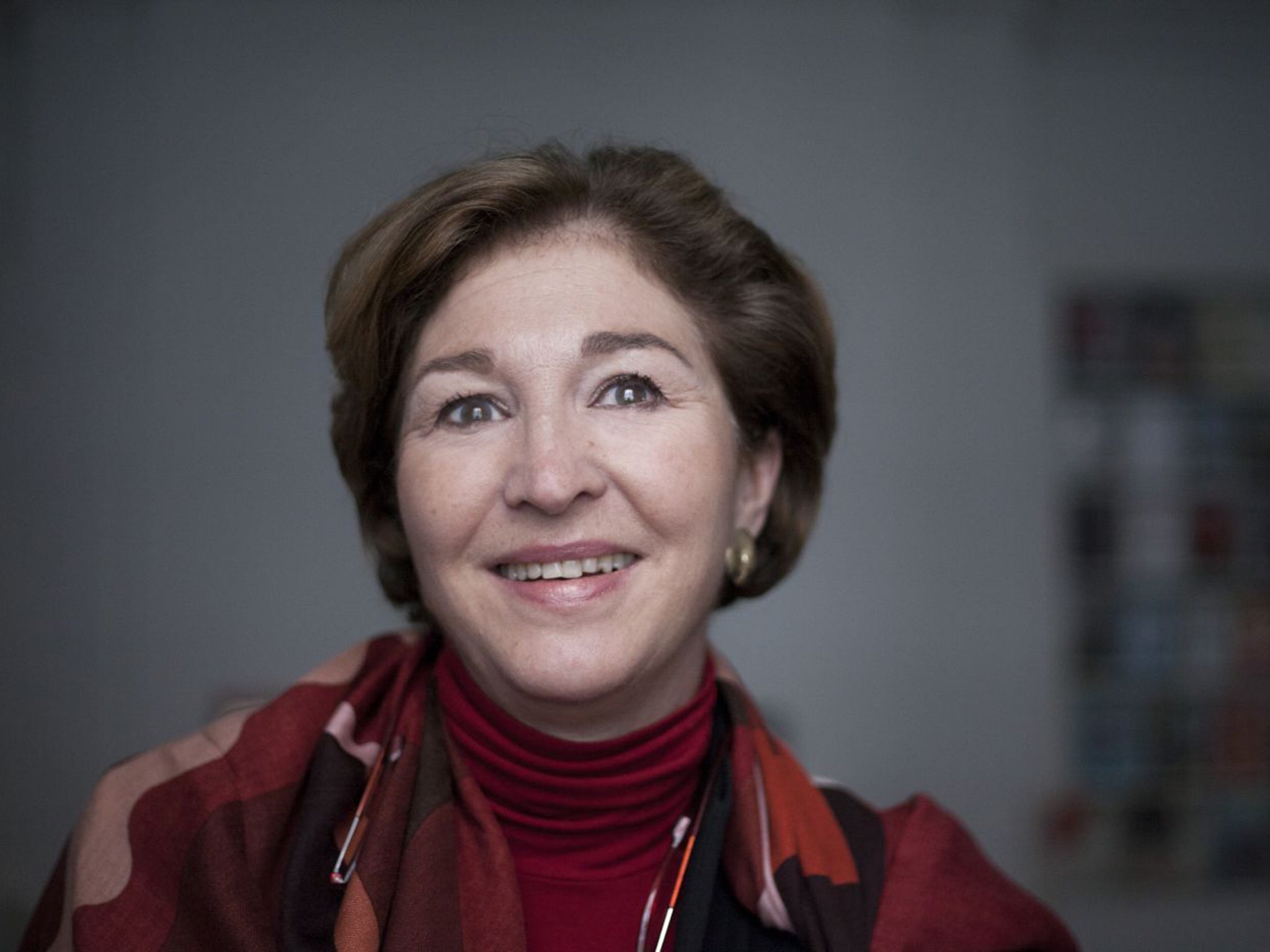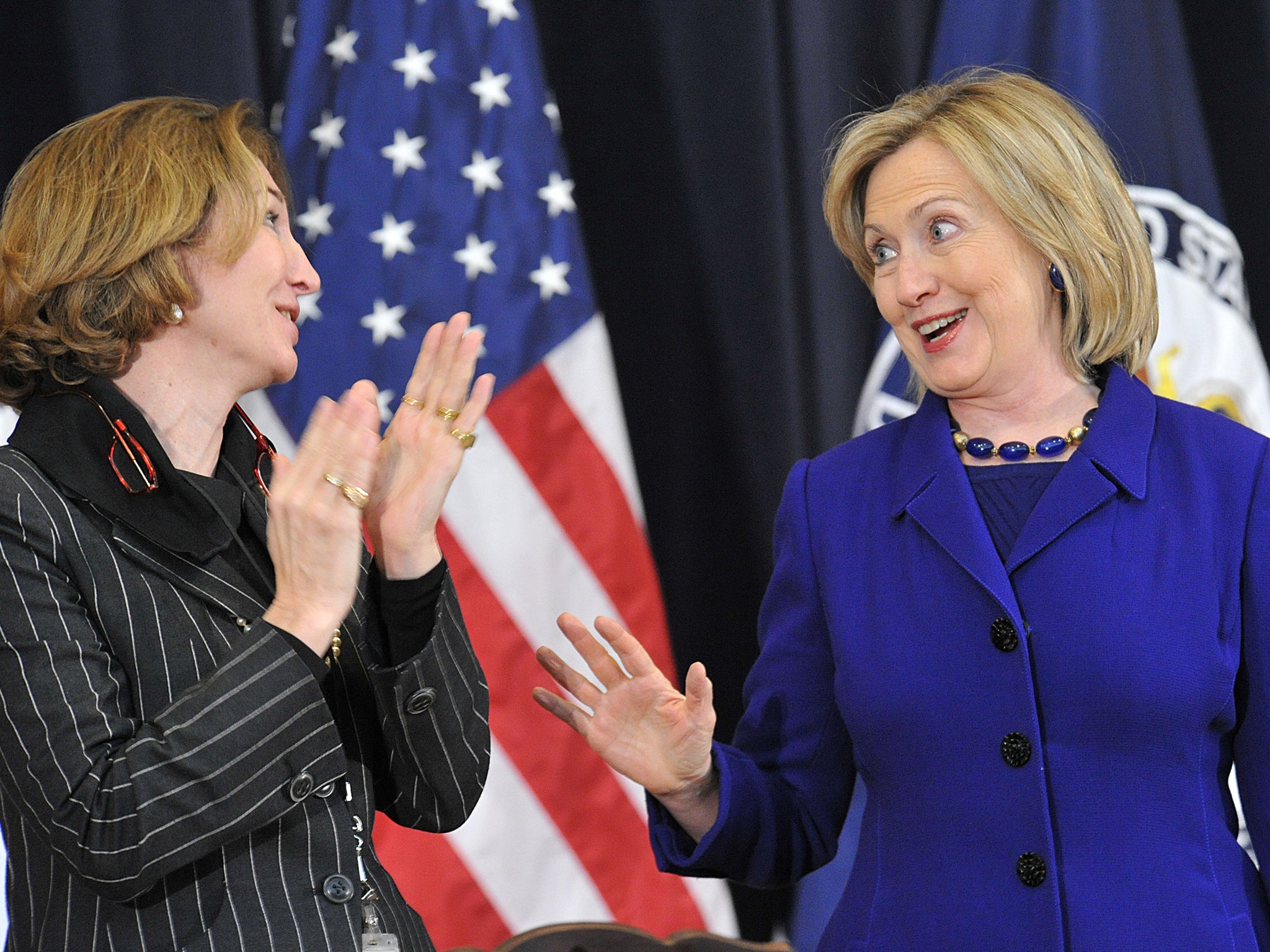Anne-Marie Slaughter: Top former aide to Hillary Clinton says presidential candidate will put family first
'In her campaign, she’s focusing on family issues very strongly as middle-class issues, as economic issues, as moral issues'

When Anne-Marie Slaughter says Hillary Clinton would make family issues a cornerstone of her presidency, you listen. No one has put their career on the line over the clash between caring for children and work quite like Slaughter – one of Clinton’s former top aides, who infamously quit her job when she felt her teenage sons needed her more than her country did.
And Slaughter, who inspired many parents with a confessional magazine article about stepping down as director of policy planning at the US State Department after her eldest son got into trouble with the police, is adamant that parental leave and universal childcare would “absolutely” be a priority if the former Secretary of State gets the key to the White House.
“She [Clinton] has the confidence and the experience to elevate women as an issue and, I think increasingly, care as an issue.... In her campaign, she’s focusing on family issues very strongly as middle-class issues, as economic issues, as moral issues,” says Slaughter, who turned her 2012 piece for The Atlantic, “Why Women Still Can’t Have It All”, into a book: Unfinished Business.
Her revelations, made over coffee at her London publisher’s office, may help quell criticism that no one knows what Mrs Clinton stands for as she enters a crucial week in the nomination race. They matter because if the tiresome wrangling over what women – and men – can or can’t combine during the course of their lives is ever to die down, the US – which along with Papua New Guinea and Oman does not offer maternity leave – needs to get with the programme.

Slaughter, 58, thinks we need a revolution in the home and the workplace before women stand a chance of equality. She is pinning her hopes on attitudes to care changing: men need to be dishing it out as well as women, and employers’ need to help that to happen. And she isn’t just talking about looking after kids. Even the childless have, or had, parents, she points out. But, sigh, it’s still women bearing the brunt. Headlines such as last week’s banner across the Daily Mail asking: “Can any wife fancy a man who becomes a house husband?” underline the scale of the challenge.
“Who is a sexy, valuable, competent man? A man who can put dinner on the table and put a baby to bed,” Slaughter told a London audience last week. She is resolute that her family only functions because her husband, fellow academic Andrew Moravscik, has long been their “lead” parent. In her fantasy house, parents with kids under five years old would each work 75 to 80 per cent of the time. Looking back, the Princeton University professor and think-tank chief executive wishes she hadn’t always been full-time. She also thinks establishing more parenting “rituals” as her boys (now in their late teens) left the “golden” age window of 5 to 11 to replace, say, the time she spent reading to them, would have helped.
Her other tips include – controversially – telling women to have babies before they hit 35. “I do advise, if they can, to try to have them younger.” This is because she spent an agonising two years trying to get pregnant before having her first child at 38.
I wonder if Slaughter realises she single-handedly ruined parenthood for me: before I read her Atlantic piece, I had assumed life would get easier, not harder. She laughs. “I remember older parents telling me that when I was young, and I had the same reaction! But when a toddler falls down, you pick them up, but in teenage years, they’re making choices that can really affect the rest of their lives. It’s the unpredictability of it that is so hard, because a teenager won’t talk to you when you want to talk to them.”
If Slaughter’s CV makes her seem scary, in the sexist way that over-achieving women can be considered intimidating, in person she is anything but. Not everyone would break the ice with a story about how a cast on her left wrist (she slipped on ice in the Swiss ski resort of Davos, spending two days in hospital instead of sitting on World Economic Forum panels) made fastening her bra somewhat tricky. “I know men who can fasten a bra with one hand, or unfasten, more to the point, but I never thought I’d have to!”
The accident did provide a handy anecdote: the (female) nurse soothing her while the (male) surgeon operated apologised for needing to leave her after two hours “to get home to give her kids lunch”. Slaughter, an advocate for flexible workplaces, added: “The fact she needed to look after her kids was part of what made her so great at what she was doing.” As chief executive of New America Foundation, a non-profit organisation based in Washington DC, she says her staff know they have to prioritise family crises when necessary.
Given that she thinks three months’ parental leave suffices, with another three months spent working flexibly, I’m curious what she makes of my three chunky absences, each lasting more than a year. Would she employ me? “Yes, without question. I genuinely think people who can run households and still work are great employees.”
If the former First Lady makes it back to the White House, I’m guessing it’s a given Slaughter will rejoin her old boss. But will she need flexible terms? “No. There is a level of work where if you want that, you have to understand that somebody else is going to be a primary caregiver, or you wait.” She pretends she won’t be drawn on her next job move, but can’t help pointing out that her youngest son “will, I hope” be at university next year. And that: “My experience in career planning is that the best things have been unexpected and not planned for.”
You never know, Slaughter could be the one to help turn those family policies into law.
Join our commenting forum
Join thought-provoking conversations, follow other Independent readers and see their replies
Comments
Bookmark popover
Removed from bookmarks